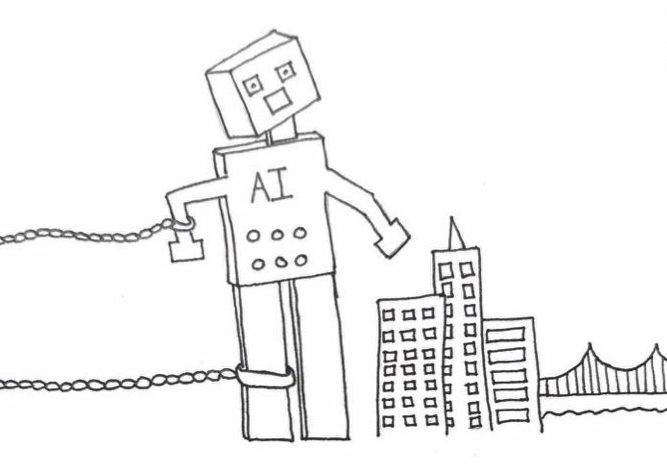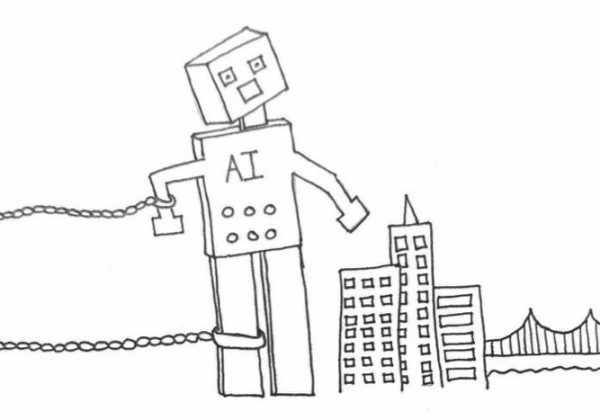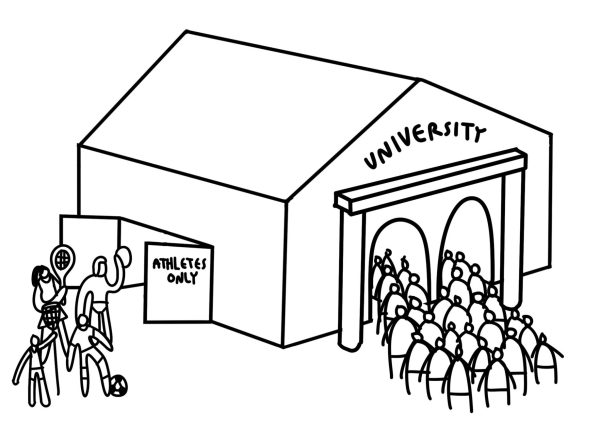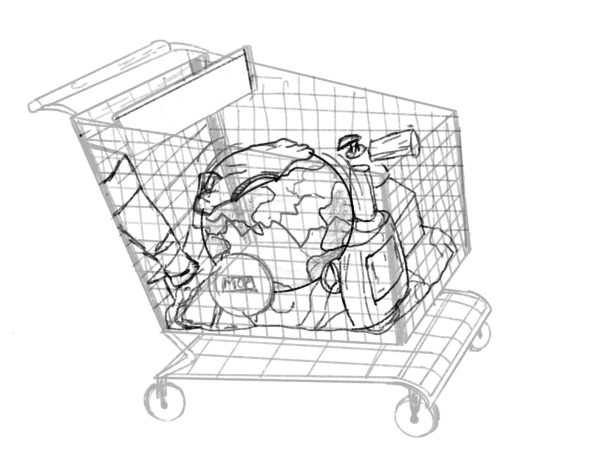Veganism: Putting the sus in sustainability
September 10, 2021
“Gamechanger! Revolutionary! Life-altering! Paradigm-shifting!” reads the back side of the carton of Oat-ly, a popular oat milk brand commonly used as an effective alternative to dairy milk. However, Oat-ly has recently been criticized for selling company stock to the Blackstone Group, an equity company that owns Brazilian investment firms which contribute to deforestation. Oat-ly used this sale to grow their production and go public on the stock market, according to a 2020 Vice article.
Despite assumptions that purchasing items marketed as vegan or living on a fully vegan diet may be more sustainable, consumers need to realize that the term “vegan” doesn’t necessarily mean their diet is the most effective way to support the environment. It is more important to shop locally — such as attending farmers’ markets or buying from local farms — rather than strictly following “veganism” to a tee. Veganism is one of many ways to efficiently reduce one’s carbon footprint, but balance and moderation are key when looking for ways to become more environmentally friendly.

According to a 2021 March Bark survey, 34 percent of Redwood students say they “often” choose a food item if it is marketed as organic or vegan. In fact, local grocery stores such as Good Earth Natural Foods in Fairfax put a premium on marketing such organic and vegan items. Oat-ly, which can be found in numerous grocery stores in Marin, has an overall mission to provide a sustainable option for non-dairy milk. This is proven both by their marketing and by their success in bringing down their climate impact from ingredients by 17 percent from 2019 to 2020, according to a report on Oat-ly’s official website. Regardless, the company’s shadier practices clearly display the need for consumers to become aware of the production processes behind vegan companies and their sustainability claims.
Though many vegan foods fall under the category of “whole” foods, which are grown directly from the Earth, the deeper production process of whole, vegan or natural foods may not always be sustainable due to the harmful environmental impacts of commercial farming.
“We want to focus on actually how the food is produced. … [Are] those farm workers unionized? Are they actually community-based? Are they a public corporation that isn’t held accountable? Are they using harmful production practices?” Tina White, a member of national advocacy group Uprooted and Rising, said to Harvard Law Review in 2020. “We have to recognize that it’s a specific way of producing food that has [a] cost; it’s not eating meat itself.”
According to a 2020 article from British Broadcasting Company (BBC), agricultural practices used in the production of many “whole” foods, such as the use of artificial fertilizers and tilling fields, can release large amounts of CO2 and other greenhouse gases into the atmosphere. In fact, artificial fertilizers alone made up three percent of greenhouse gas emissions in 2020. Rather than simply buying something that is categorized as “vegan” in order to promote environmental sustainability, consumers should instead focus on buying foods that fall under fair trade and are specifically labeled “organic”. This ensures that both workers and farmers are fairly compensated for their produce and prevents the use of synthetic fertilizers and pesticides.
However, many may view that maintaining a vegan diet, despite any malpractice or corporate greed by a company, remains one of the best ways to reduce your carbon footprint. Though this is technically true, the term “vegan” at its root is simply not eating animal products, and doesn’t eliminate the fact that it isn’t necessarily healthy or feasible for all people to sustain for long periods of time. On a personal level, I know I am someone who will never be able to fully maintain a vegan lifestyle. Though I’ve mainly cut out dairy and red meat from my diet for health reasons, I’ve never been able to thrive on a fully vegan diet for sustained periods of time due to the specificity of foods available to eat and the difficulty in balancing athletics with eating vegan foods that were able to fuel my performance well. Additionally, the fact remains that on the many occasions when I’ve visited Good Earth Fairfax, I’ve spent considerably more money there than at a store with fewer vegan options. In fact, according to Vox, most Americans consistently buying plant-based foods have an income of over $100,000 a year, compared to the median yearly income of $68,703 in the United States.
Putting strict labels on lifestyle and sustainability habits can become unsustainable on a personal level in the long run. Simply cutting down meat intake, shopping for locally grown foods and doing more thorough research on brands marketing themself as “vegan” are the best ways to find out how to make long-term eco-friendly choices going forward.






















